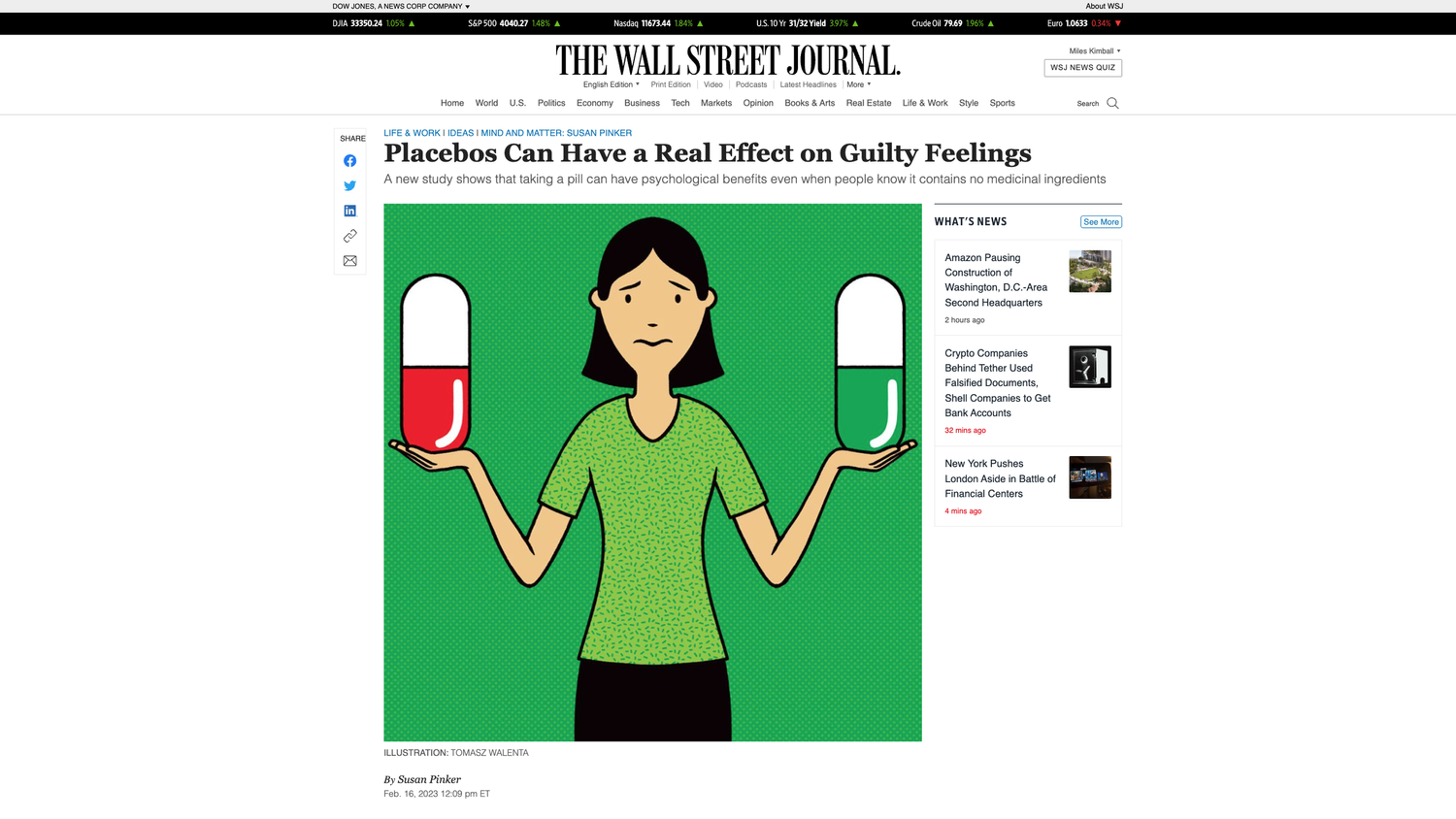The “placebo effect” is the psychological effect of fake pills or other treatments that seem at first glance like they shouldn’t do much of anything. The placebo effect is quite important statistically, as an alternate pathway of effect that doesn’t depend on the chemical composition of a drug or what seem like the substantive elements in another type of treatment.
For practical purposes, the reason the placebo effect is so important is that it shows what curative effect one can get without the side effects that many other treatments have. Why use a real pill if it is no better than a fake pill, and has worse side effects or is more expensive than a fake pill? The same goes for other treatments that have side effects worse than a corresponding placebo treatment.
However, placebos as usually done involve deception, and deception has bad side effects. So it is useful to know about evidence that placebos can work even when they are above board. In a study led by Basel University Clinical Psyche PhD student Dilan Sezer, experimental subjects were first asked to write about an incident that made them feel guilty. Then, in Susan Pinker’s words in her February 16, 2023 Wall Street Journal article “Placebos Can Have a Real Effect on Guilty Feelings,”
… participants were randomly assigned to one of three groups. The first was given a “deceptive” placebo: It contained no medicinal ingredients, but participants were told it contained herbs and essential oils that had been “shown to reduce guilt feelings.” The second group was given an “open” placebo and were told that it “does not contain any medicinal ingredients.” The third was a control group that received no intervention at all.
… Both placebo groups showed a significant drop in guilt compared to those in the no-treatment control group. What’s more, ‘“the difference between placebo groups was statistically indistinguishable,” …
The brain has a big effect on the rest of the body through many channels, most of them not fully conscious. Let’s not assume that deception is needed for a given effect until that is proven.


